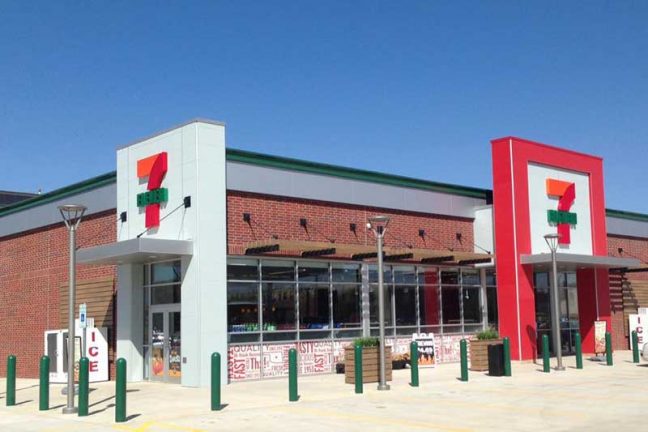Last updated on September 28th, 2016 at 03:50 pm
More than 60 years ago, the late Bill Brown and his wife, Carol, moved their family to Oklahoma City with an emerging business idea: a chain of conveniently located stores that stocked all the things people might want or need in the moment, from ice and refreshments to basic grocery staples, according to the company’s website. Family friends in Dallas, Texas—the Thompsons—had begun developing the 7-Eleven idea, and the Brown family set out to do the same in Central Oklahoma.
It was the early days of what would become the convenience store, and today there is no better-known convenience store brand than 7-Eleven. The Oklahoma and Texas businesses both have succeeded, but they are separate entities.
Oklahoma City-based 7-Eleven Stores employs more than 1,200 people and operates more than 110 stores. It is growing and progressive and just last year began rolling out a new format featuring full kitchens in anticipation of offering more made-to-order foodservice items.

“That’s not how our kitchen is set up, but that’s where we’re headed,” said Jim Brown, president and CEO of the company. “I don’t think we’re very far away from a made-to-order format.”
He told The Shelby Report that in a year’s time there will be a total of nine of the new models operating in central Oklahoma.
“But we’ll be starting on the others,” he said. “We’ve got a lot of inventory.”
Brown said the company has been going through a lot of changes, technologically and organizationally. He is proud of how the company has been able to “rally and embrace a lot of changes.
“We have a lot of tenure in our organization, so that’s usually a real challenge, to get folks that are used to doing things a certain way to embrace change,” Brown said. “What I’m most impressed with and proud of is the extent to which they’ve been able to do that and continue to do that. It’s a challenge for everyone, but especially when you’re in an organization with as much tenure as we have.”
Brown said the average store leader has more than 13 years with the company. The people they report to have more tenure than that.
State’s economy affected by oil downtown
An economic snapshot released by the Joint Economic Committee in August stated that private-sector employment in Oklahoma fell by 6,400 jobs. Over the past year, Oklahoma businesses have shed 11,700 jobs, according to the report. The state’s unemployment rate increased to 5 percent in July 2016, up 0.2 percent vs. June. Some of the jobs that were lost were in the oil and gas industries. Oklahoma comes in fifth in the country for oil and natural gas output, but the recent downturn has cost the state thousands of jobs.
Brown said changes within the energy sector affect everyone.
“It has a trickle-down effect. It’s not just those jobs, but they support a lot of other retail and service businesses that are going to be impacted when those people go away,” Brown said.
According to Moody’s, Oklahoma City and Tulsa have absorbed much of their energy sector job losses. Even so, jobs replacing those in gas and oil undoubtedly don’t pay as well.
November ballot question could change state’s liquor laws
When Oklahoma voters go to the polls in November, they will answer “yes” or “no” on State Question (SQ) 792. If they choose yes, laws governing alcohol sales and distribution in the state will be completely changed.
Currently in Oklahoma, liquor, wine and strong beer are only sold at licensed package stores, which are closed on Sundays. Any beverage with more than 3.2 percent alcohol by weight or 4 percent alcohol by volume—most liquor, wine and beer—may only be sold at licensed liquor stores at room temperature. The state now allows refrigerated “low-point” beer to be sold at grocery and convenience stores until 2 a.m. and on Sundays.
Should voters approve SQ 792, grocery and convenience stores would be able to sell full-strength beer and wine seven days a week.
Brown said he isn’t sure whether the changes would have a positive effect on 7-Eleven’s business.
“I just think it’s good for the state, and if our customers want it, we want it,” Brown said.
*Editor’s note: This is part of the Oklahoma Market Profile, which appears in its entirety in the October 2016 print edition of The Shelby Report of the Southwest.






